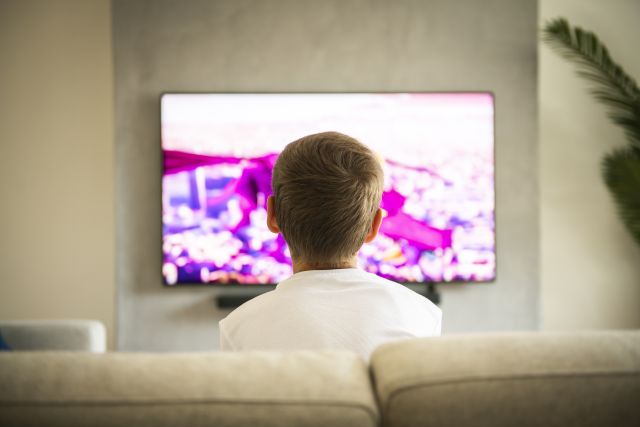Updated on October 10, 2024
Somehow, the more we know about attention-deficit/hyperactivity disorder (ADHD), the more myths about ADHD seem to arise. It may seem like everyone—from friends and neighbors to Hollywood celebrities—has something to say about it. It can be hard to separate facts about ADHD from fiction. Get the straight facts with this list of myths about ADHD.
Myth #1: Only kids have ADHD.
It's true that more than 1 in 10 kids in the United States between the ages of three and 17 has been diagnosed with ADHD. But more than four percent of adults have ADHD, too—that’s about 10 million adults. And, in fact, many cases of adult ADHD are undiagnosed or misdiagnosed, in part because ADHD is often thought to be only a childhood condition.
Myth #2: All kids "outgrow" ADHD.
Not always. Between 50 and 86 percent of children with ADHD still have symptoms in their twenties. And for those kids, ADHD can continue to affect their lives in adulthood—such as relationship concerns and work issues. Some people may have persistent feelings of guilt and frustration.
Myth #3: Medication is the only treatment for ADHD.
Medication can be useful in managing ADHD symptoms, but it's not a cure. And it's not the only focus of treatment. A combination of strategies, including medication, lifestyle changes, psychotherapy, education, and cognitive behavioral therapy can significantly improve symptoms.
Myth #4: People who have ADHD are lazy and lack willpower.
In fact, ADHD has nothing to do with determination, motivation, or intelligence. It can present unique challenges, however, especially with executive functioning. These are mental skills that help you stay focused, follow directions, manage emotions, and plan ahead to meet goals.
Task paralysis is a common feature of ADHD. This is the experience of feeling psychologically overwhelmed by the complex series of steps involved with a task that some people may consider to be simple, like cleaning a room. From the outside, task paralysis can look like procrastination or lack of motivation, when it’s really the result of a neurobehavioral condition caused by changes in brain chemicals and how the way the brain works.
The good news is that there are many strategies for working around these difficulties with executive functioning—ADHD doesn't have to get in the way of success.
Myth #5: ADHD isn't a real condition.
Doctors and mental-health professionals agree that ADHD is a real biological condition that can significantly affect functioning in people who have it. ADHD is caused by an imbalance in brain chemicals, which affects certain brain areas that regulate behavior and emotion. Brain scans have shown physical differences in multiple parts of the brain in people with ADHD. This variation in brain development and brain function produces ADHD symptoms.
Myth #6: Parenting style causes ADHD.
Social factors, like some parenting styles, do not cause ADHD. The exact cause of ADHD is not known. A combination of genetic and neurological factors, like complications in pregnancy and birth, damage to the brain, environmental chemicals, and infections, may be involved ADHD. Supportive parenting skills can help children deal with ADHD symptoms, but parenting choices don’t cause ADHD symptoms.
Myth #7: Kids with ADHD are always hyper.
Not always. There are three types of ADHD—the inattentive type, the hyperactive-impulsive type, and the combined type. The last type is a mix of inattentive and hyperactive-impulsive symptoms, and is the most common type. Although kids with hyperactive-impulsive or combined ADHD may be fidgety and restless, kids with inattentive ADHD are not. Instead, their ADHD symptoms have to do with focusing and staying organized. It means they can be forgetful, may not pay attention when someone is talking, or may miss homework or work deadlines.
Myth #8: Too much TV time causes ADHD.
A combination of genes and neurological factors causes ADHD, not habits. That said, spending excessive amounts of time with screens could raise the risk of developing the condition, according to a 2023 meta-analysis in Reviews on Environmental Health. And in kids and teens who already have ADHD, excess screen time may make symptoms worse.
Myth #8: Most people with ADHD were assigned male at birth.
While this was a long-held belief for many years, research has shown this isn’t true. Though fewer people assigned female at birth are diagnoased with ADHD, overall the condition occurs as often in both sexes. Some of this long-held discrepancy may have been related to the fact that girls are more likely to have the inattentive type of ADHD, while boys tend to show the hyperactive-impulsive type of ADHD. The hyperactive-impulsive type is more noticeable and associated with a more classic, popular understanding of what ADHD looks like. But as awareness among healthcare providers and the general population grows, this has changed.
Myth #9: If you can focus on certain things, you don't have ADHD.
It's true that people with ADHD may have concerns about focusing on things that don't interest them. But some people with ADHD get extremely absorbed in activities they enjoy—called "hyperfocus."
There are two different types of attention. Automatic attention is when you notice things without deliberately meaning to, like noticing a group of schoolchildren walk past where you’re sitting on a bench. Directed (or effortful) attention is the type you might engage in when trying to get your homework, taxes, or work done. You sit down and coax your mind to pay attention to the task at hand.
Hyperfocus is a version of automatic attention. If you like something, your attention is automatically drawn to it, and it can stay fixated on it unless it’s interrupted. Hyperfocus could mean you become so focused that you ignore other responsibilities and lose track of time. But on the other hand, hyperfocus can help you be more productive in activities that you enjoy and are good at.
Myth #10: ADHD is overdiagnosed.
It’s true that diagnoses of children has risen steadily throughout the twenty-first century. However, most children are diagnosed by licensed healthcare providers who are using the best practice guidelines. Many children with ADHD grow up to be adults with ADHD. The pressures and responsibilities of adulthood may exacerbate ADHD symptoms, leading adults to seek evaluation and diagnosis for the first time. Also, parents who have children with ADHD may seek treatment only after recognizing similar symptoms in themselves. In addition, awareness has risen overall, so that healthcare providers are more familiar with the symptoms and treatment options, and more people are being screened.






